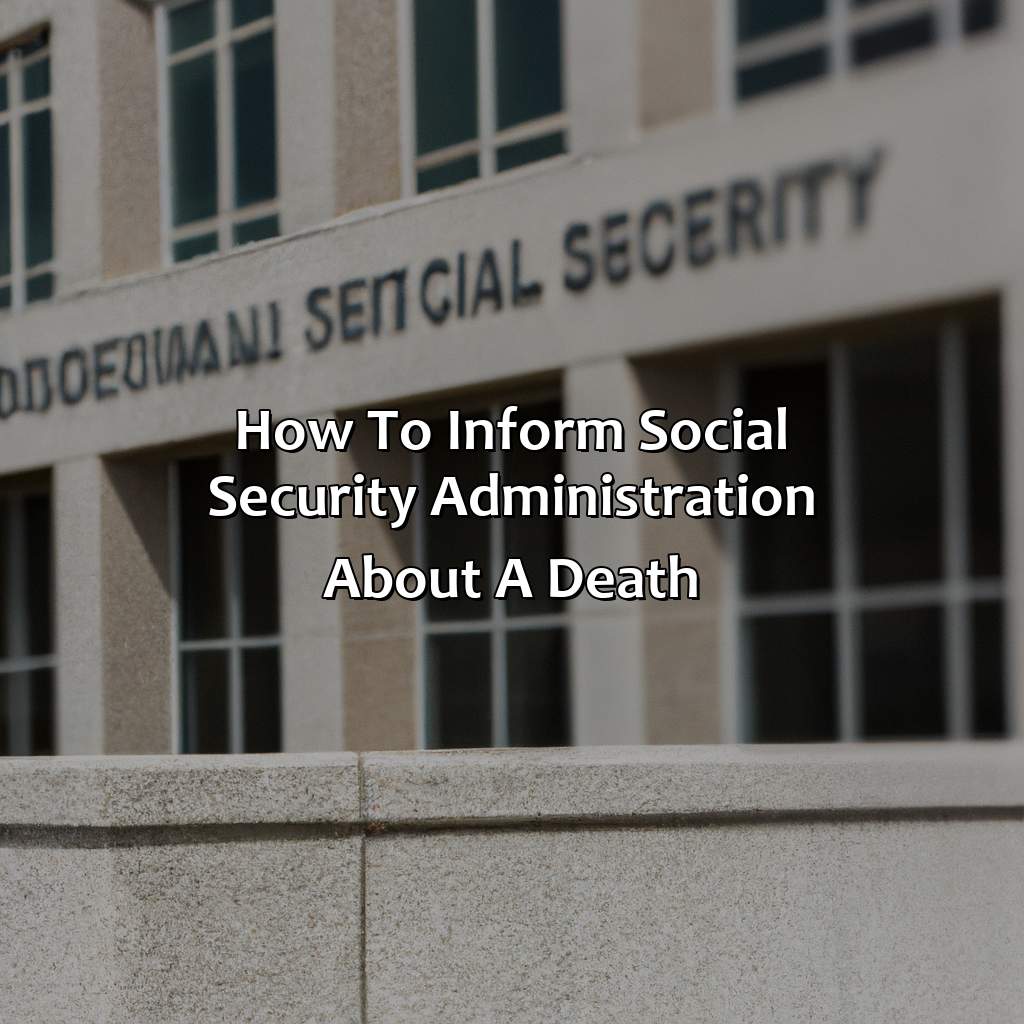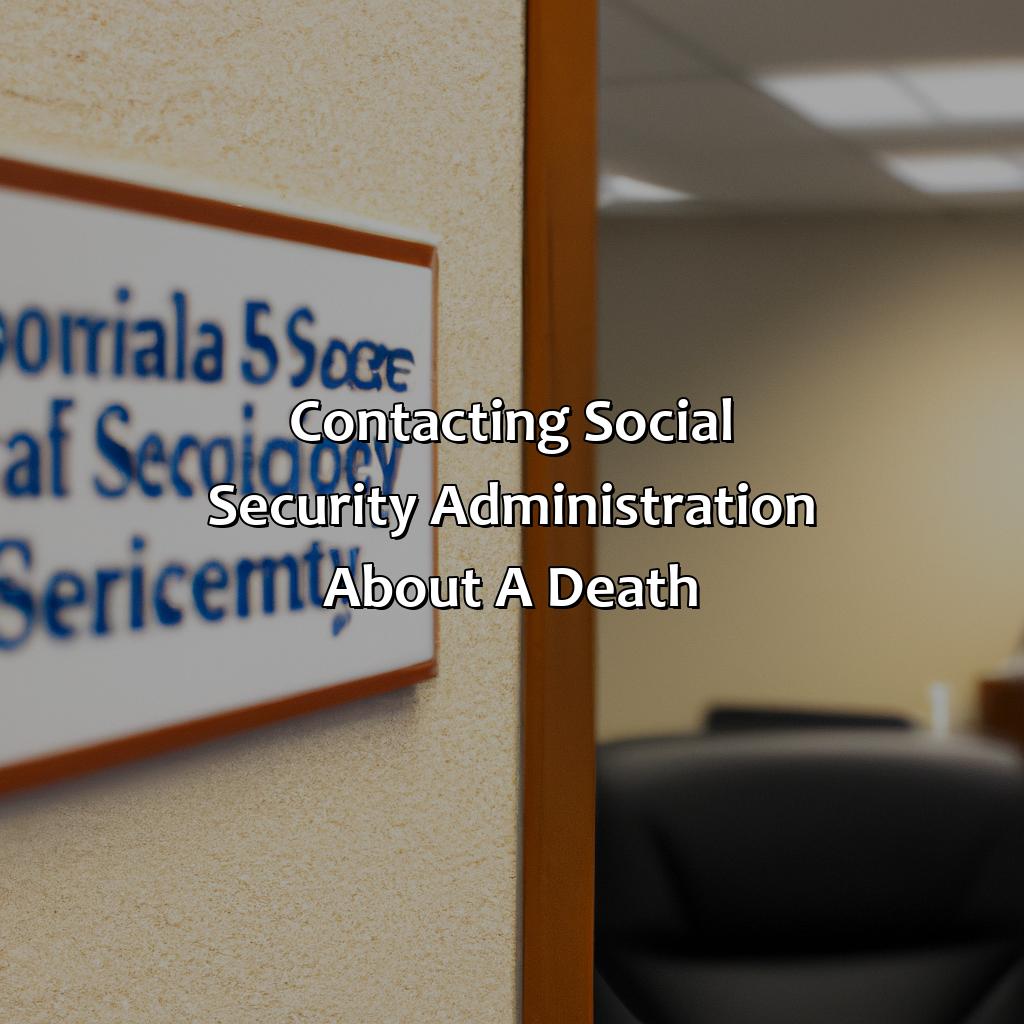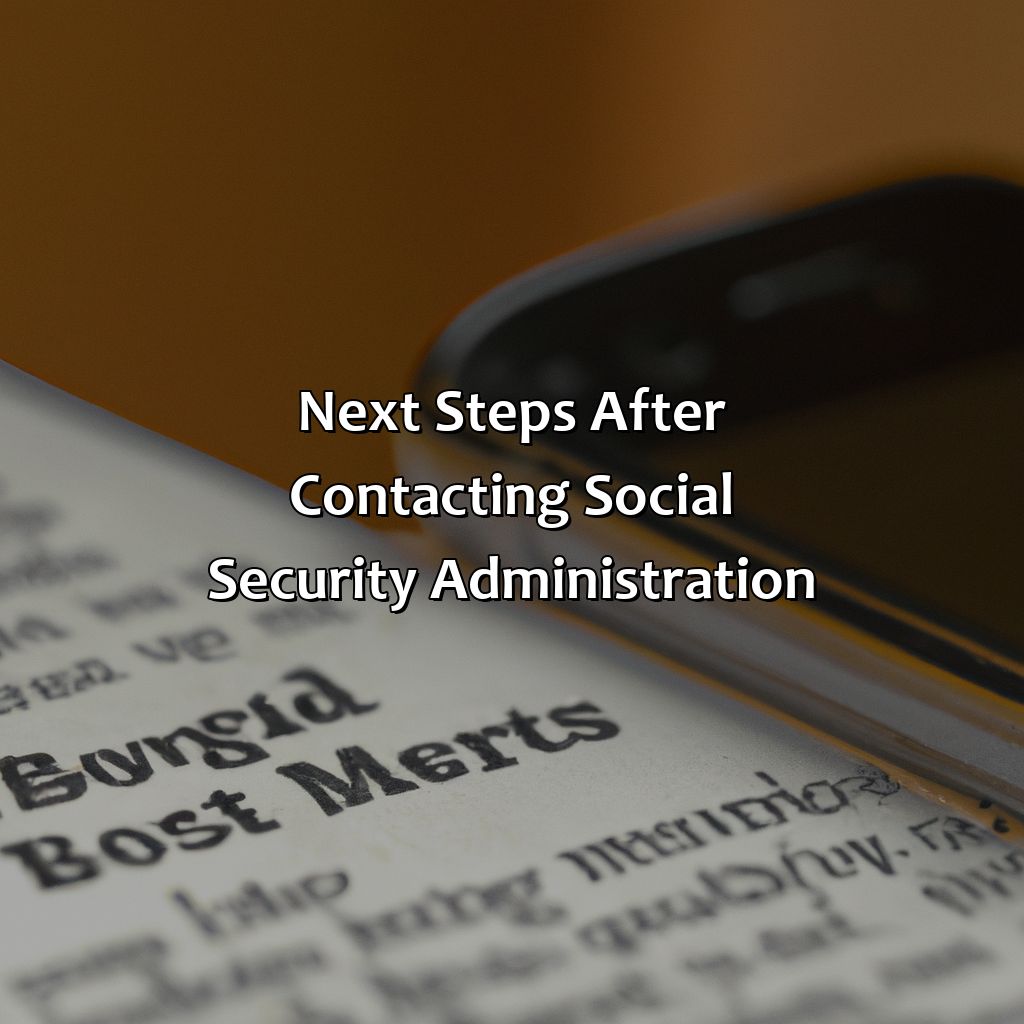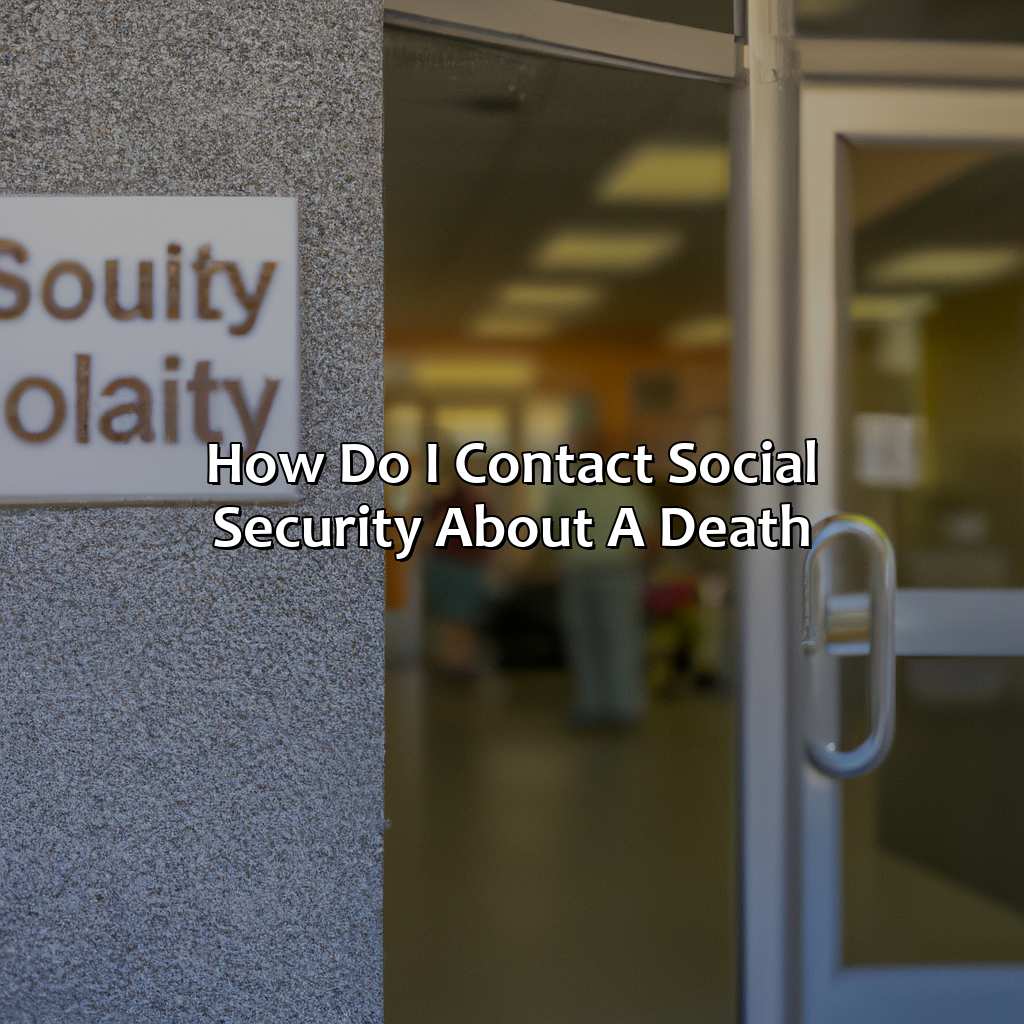How Do I Contact Social Security About A Death?
Key Takeaways:
- Informing the Social Security Administration (SSA) about a death is an important step to ensure that survivors receive benefits in a timely manner.
- When contacting the SSA about a death, gather important information such as the deceased’s social security number, date of birth, and date of death.
- Choosing the appropriate method of contact with the SSA, such as a phone call or in-person visit, can help ensure a smoother and more efficient process.
- After contacting the SSA, be prepared to provide documents such as the death certificate and proof of relationship to the deceased in order to claim benefits.
- The timeline for receiving benefits can vary, but survivors can check the status of their claim online or by contacting the SSA. Additional resources and support are also available to help navigate the process.
Are you wondering how to contact the Social Security Administration when someone has passed away? You’re not alone. This article dives into the specifics of how to contact the SSA and what to expect. Gain the information and guidance you need to make this difficult process easier.
How to inform Social Security Administration about a death
The process of reporting a death to the Social Security Administration requires certain steps to be followed. Here is a guide on how to inform the Social Security Administration of a loved one’s passing:
- Obtain a copy of the death certificate from the funeral home or registrar’s office. The death certificate must be an original or certified and notarized copy.
- Contact the Social Security Administration by phone (1-800-772-1213) or in person at your local Social Security office. Provide the deceased’s name, Social Security number, and date of death.
- If the deceased was receiving Social Security benefits, you will need to return any payments that were received for the month of death or thereafter.
- If the deceased was married and the surviving spouse is eligible for Social Security benefits, the surviving spouse will need to contact the Social Security Administration to apply for survivor benefits.
- Notify any other parties that may need to be informed of the death, such as life insurance companies or financial institutions.
It is important to report the death to the Social Security Administration as soon as possible to avoid any potential overpayments or delays in processing survivor benefits.
Additionally, it is recommended to keep any important documents related to the deceased and their benefits in a safe and organized manner. This can include the death certificate, Social Security card, and any other relevant paperwork.
By following these steps, you can ensure that the Social Security Administration is informed of the death and that any necessary actions are taken in a timely manner.

Image credits: retiregenz.com by Yuval Duncun
Contacting Social Security Administration about a death
When a loved one passes away, it is essential to reach out to the Social Security Administration (SSA) to ensure that any benefits the deceased was entitled to are discontinued and to check if any survivors may be eligible for benefits. To inform SSA about a death, certain documents such as the death certificate must be presented. It is crucial to act promptly as delays may cause a loss of benefits. Be considerate and respectful in communication with SSA.
When contacting the SSA regarding a death, it is important to have information about the deceased readily available, such as their name, Social Security number, and date of death. Additionally, the funeral director, if one is used, will generally report the death to the SSA; however, it is always recommended to follow up to ensure that everything is in order. A Semantic NLP variation of this heading could be “Notifying the Social Security Administration of a Death“.
It is crucial to note that SSA may pay a one-time lump-sum death payment to a surviving spouse or child. This payment may be used to help with funeral expenses. However, the surviving spouse must apply for this benefit within two years of the death of the spouse. A Semantic NLP variation of this heading could be “Survivors Eligibility for Benefit Payment“.
To avoid delays in processing, it is essential to reach out to SSA as soon as possible after a death occurs. Not only does this prevent any potential loss of benefits, but it also ensures that any survivors are taken care of. Be sure to compile all necessary documents before making your contact. Loss of benefits can cause a severe financial setback and can be challenging to recover from.

Image credits: retiregenz.com by Yuval Duncun
Next steps after contacting Social Security Administration
After reporting a death to Social Security Administration, there are various crucial steps to follow to ensure a seamless process. Here is a 4-step guide to actions to take following notification to the Social Security Administration:
Notify other necessary organizations or agencies, such as the Veteran’s Administration, banks, life insurance firms, and pension plans.
Determine any potential eligibility for death benefits, such as survivor benefits and final pay.
Stop any automatic payments or withdrawals from the deceased’s account.
Request a credit report to ensure that the deceased’s identity is not misused by anyone else.
It is worth noting that each situation might require additional or different steps. Therefore, it is imperative to inquire with the Social Security Administration or an expert in the field to determine what extra actions must be taken.
Pro Tip: Always gather all relevant details before contacting Social Security Administration. This will ensure swift and accurate communication with their staff.

Image credits: retiregenz.com by Yuval Woodhock
5 Well-Known Facts About How To Contact Social Security About a Death:
- ✅ To report the death of a beneficiary, call Social Security at 1-800-772-1213 (TTY: 1-800-325-0778) between 7 a.m. and 7 p.m., Monday through Friday. You can also contact your local Social Security field office. (Source: Social Security Administration)
- ✅ You will need to provide the deceased person’s Social Security number, date of birth, and date of death. (Source: Investopedia)
- ✅ If you received benefits as a spouse or child of the deceased, you may need to file for survivor’s benefits. (Source: AARP)
- ✅ Social Security may need to verify the death before stopping payments, which can take a few weeks. (Source: TurboTax)
- ✅ Social Security will not pay benefits for the month of death. (Source: Forbes)
FAQs about How Do I Contact Social Security About A Death?
How do I contact Social Security about a death?
If someone has passed away, you’ll need to contact Social Security to report the death and figure out if any benefits are due. Here’s how:
- Call Social Security at 1-800-772-1213 (TTY 1-800-325-0778), Monday through Friday, from 7 a.m. to 7 p.m.
- Visit your local Social Security office.
- Complete and mail the death notification form found on the Social Security website.
What information do I need to provide when reporting a death to Social Security?
You’ll need to provide the deceased person’s Social Security number, date of birth, and date of death. If you’re reporting the death as a family member, you’ll also need to provide your own Social Security number and contact information.
How soon do I need to report a death to Social Security?
Social Security should be notified as soon as possible after a death. Benefits may be paid for the month of death if the person was alive for any part of the month.
What will happen to the deceased person’s Social Security benefits?
If the deceased person was receiving Social Security benefits, those will stop upon death. If the person was married, the surviving spouse may be entitled to survivor benefits based on the deceased person’s work record.
Can family members receive Social Security benefits after a loved one’s death?
Survivor benefits may be available to certain family members, such as a surviving spouse or dependent children. These benefits are typically based on the deceased person’s work record.
Are there any other benefits available to family members after a loved one’s death?
Other benefits, such as a lump-sum death payment and funeral expense reimbursement, may be available to certain surviving family members.
